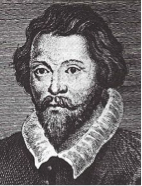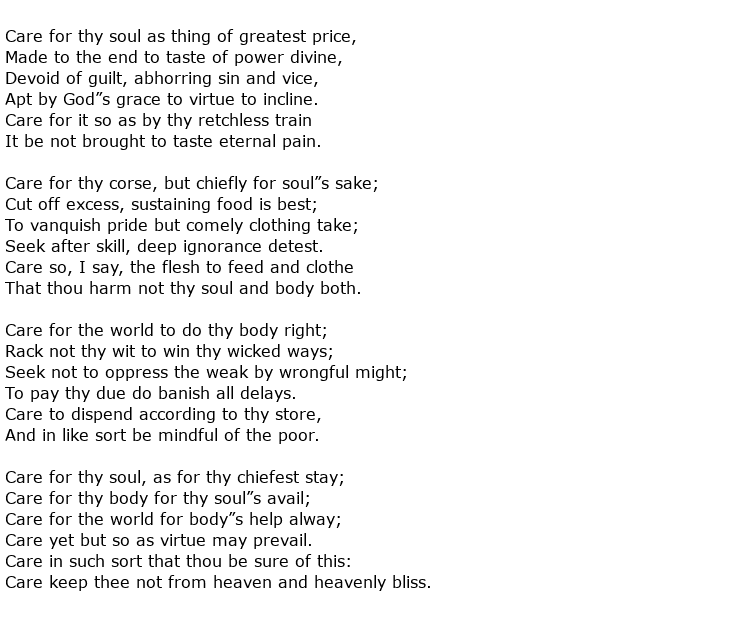 William Byrd was an English poet and composer of mostly sacred musical pieces, whose main focus was on the development of the English madrigal, a style that had originated in Italy in the 14th century. He was also an expert keyboard player. He was a Catholic but much of his work was produced for Anglican services which was, perhaps, a sensible course to follow bearing in mind the time in which he lived.
William Byrd was an English poet and composer of mostly sacred musical pieces, whose main focus was on the development of the English madrigal, a style that had originated in Italy in the 14th century. He was also an expert keyboard player. He was a Catholic but much of his work was produced for Anglican services which was, perhaps, a sensible course to follow bearing in mind the time in which he lived.
Conflicting reports of his year of birth exist with some saying that the year was 1539 while other suggest 1540, or even 1543. The place was certainly London, but little is known of his formative years although it is known that he had two brothers and four sisters. It seems fairly certain that he studied music under Thomas Tallis who was also a musician and composer of sacred music, so he clearly followed in his mentor’s footsteps. The pair were parted when Byrd took up an appointment as organist choir master at Lincoln Cathedral in 1563 but were reunited nine years later in London where they shared the organist duties as Byrd was appointed to the post of Gentleman of the Chapel Royal.
This partnership came to the attention of Queen Elizabeth I who granted them the joint monopoly allowing them to import, print and publish music and also to print music paper. To celebrate this honour their first, jointly published work was dedicated to the Queen, a collection of 34 Cantiones sacrae. Byrd wrote 17 of these pieces which were Latin motets. The collection was prefaced by poems in Latin, in the style of elegiacs. Incidentally, the number of pieces written by each man – 17 – was significant as it was to celebrate the Queen’s 17-year reign up to that point.
It was, perhaps, surprising that he curried so much favour with the monarch as he was a devout Roman Catholic and, of course, it was not always safe to be of that faith in those turbulent times. Byrd moved his family out of the capital in 1577, to Harlington in Middlesex. He probably enjoyed a more relaxed frame of mind there, despite associating with fellow Catholics who were, in fact, often under suspicion of treason.
Byrd lost his good friend Tallis in 1585 and then threw himself into his work, publishing a number of other collections of music, this time all by his own hand of course, over the next few years. Another move, this time to Stondon Massey in Essex, occurred in 1593 and he remained there for the rest of his life. In 1603 James VI of Scotland succeeded to the English throne and, from then on, the lives of English Catholics was a little easier and, thus encouraged, Byrd produced many more collections of religious music and masses.
While the focus of Byrd’s work was clearly sacred music, he did write poetry as well and many of these were also on a religious theme. One such was titled Care For Thy Soul As Thing Of Greatest Price and the content is clear, urging readers to cherish the most vital part of their own being – the soul itself. Here is the poem:

He lived a long life and produced music and poetry almost to the end. His life was not always straightforward but he managed to accumulate considerable wealth, thus leaving his family well provided for.
William Byrd died on the 4thJuly 1623 at Stondon Massey, in his early 80s. The Chapel Royal Check Book contains an entry celebrating his life and calling him


